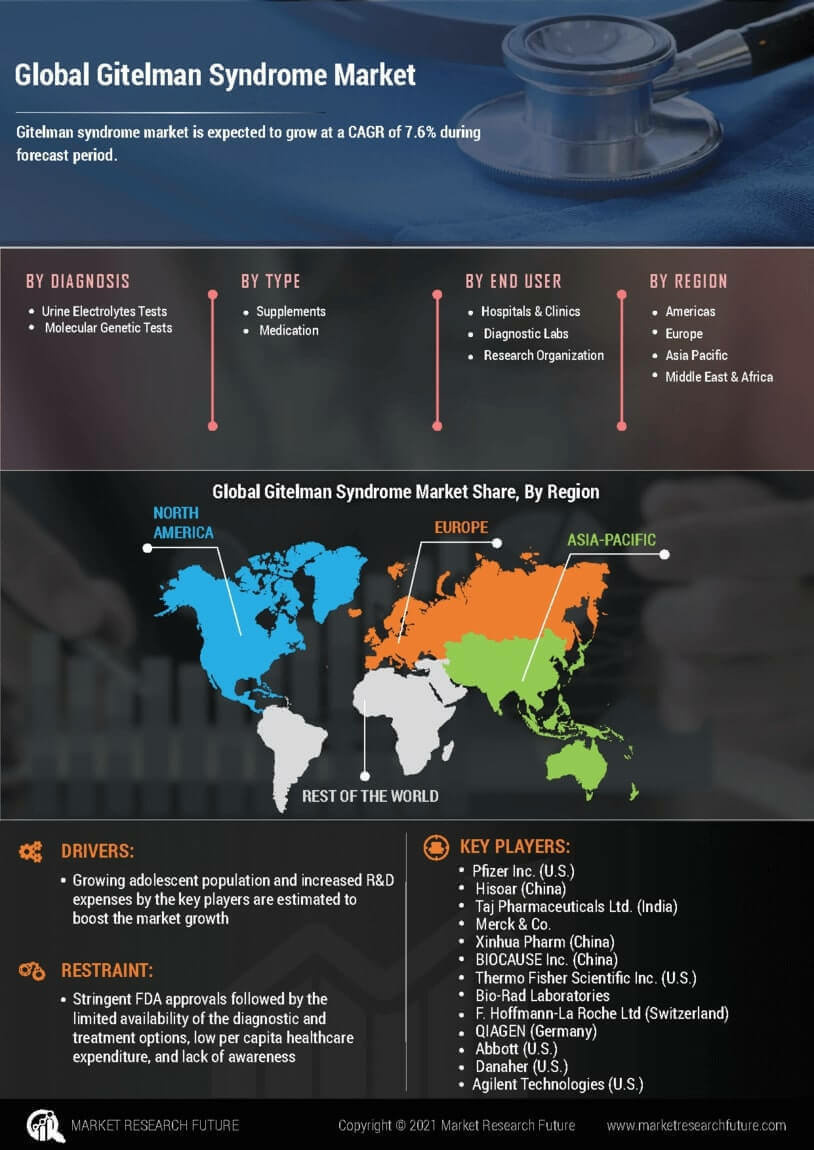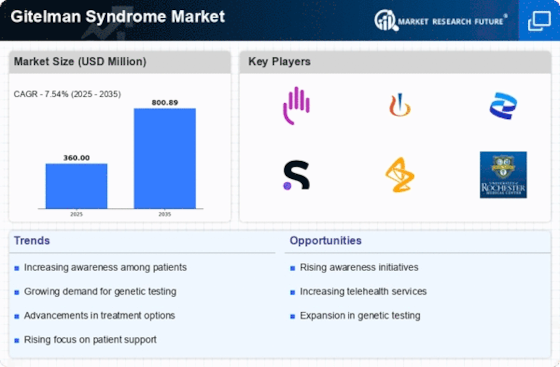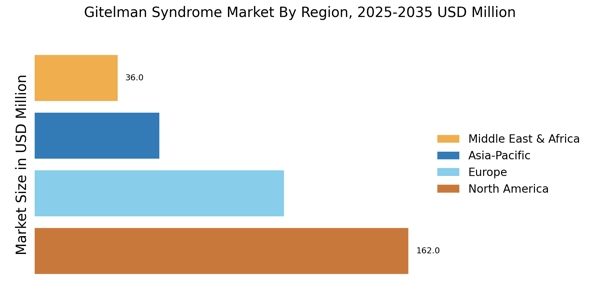Advancements in Genetic Research
Advancements in genetic research are playing a critical role in shaping the Gitelman Syndrome Market. The identification of specific genetic mutations associated with Gitelman Syndrome Market has opened new avenues for understanding the disorder. Research initiatives focused on the genetic basis of the condition are likely to lead to improved diagnostic tools and targeted therapies. As genetic testing becomes more accessible and affordable, it is expected that more individuals will undergo testing, leading to increased diagnosis rates. This surge in genetic research not only enhances the understanding of Gitelman Syndrome Market but also fosters collaboration between researchers and pharmaceutical companies, potentially accelerating the development of innovative treatments. Consequently, the growth of the Gitelman Syndrome Market is closely tied to these advancements in genetic research.
Increased Awareness and Education
Increased awareness and education regarding Gitelman Syndrome Market are pivotal in driving the Gitelman Syndrome Market. Healthcare providers are becoming more informed about the condition, leading to improved diagnosis and management. Educational initiatives aimed at both medical professionals and the general public are crucial in promoting understanding of the syndrome's symptoms and implications. This heightened awareness is likely to result in earlier diagnosis and treatment, which can significantly improve patient quality of life. Furthermore, as more patients are diagnosed, the demand for specialized care and resources will likely increase, thereby expanding the market. The role of patient advocacy groups in disseminating information and supporting affected individuals cannot be understated, as they contribute to the overall growth of the Gitelman Syndrome Market.
Supportive Regulatory Environment
A supportive regulatory environment is emerging as a key driver in the Gitelman Syndrome Market. Regulatory agencies are increasingly recognizing the need for expedited approval processes for orphan drugs and treatments targeting rare diseases. This shift is likely to facilitate the entry of new therapies into the market, thereby enhancing treatment options for patients with Gitelman Syndrome Market. Additionally, initiatives aimed at providing incentives for research and development in rare diseases are expected to encourage pharmaceutical companies to invest in this area. As the regulatory landscape evolves to support innovation, the Gitelman Syndrome Market may witness a surge in new product launches and therapeutic advancements, ultimately benefiting patients and healthcare providers alike.
Innovations in Treatment Modalities
Innovative treatment modalities are emerging as a significant driver in the Gitelman Syndrome Market. Recent advancements in pharmacological therapies, including the development of new medications that target electrolyte imbalances, are enhancing patient outcomes. For instance, the introduction of thiazide diuretics has shown promise in managing symptoms associated with Gitelman Syndrome Market. Additionally, ongoing clinical trials are exploring novel therapeutic approaches, which may lead to more effective treatment options. The potential for personalized medicine, tailored to the genetic profiles of patients, could revolutionize the management of this condition. As these innovations gain traction, they are expected to attract investment and interest from pharmaceutical companies, thereby contributing to the growth of the Gitelman Syndrome Market.
Rising Prevalence of Gitelman Syndrome
The increasing prevalence of Gitelman Syndrome Market is a notable driver in the Gitelman Syndrome Market. Recent studies indicate that the incidence of this rare genetic disorder is on the rise, with estimates suggesting that it affects approximately 1 in 40,000 individuals. This growing patient population necessitates enhanced diagnostic and therapeutic options, thereby stimulating market growth. As awareness of the syndrome expands among healthcare professionals and patients alike, the demand for specialized treatments and management strategies is likely to increase. Furthermore, the rising prevalence may lead to more research funding and initiatives aimed at understanding the underlying mechanisms of the disorder, which could further propel advancements in the Gitelman Syndrome Market.

















